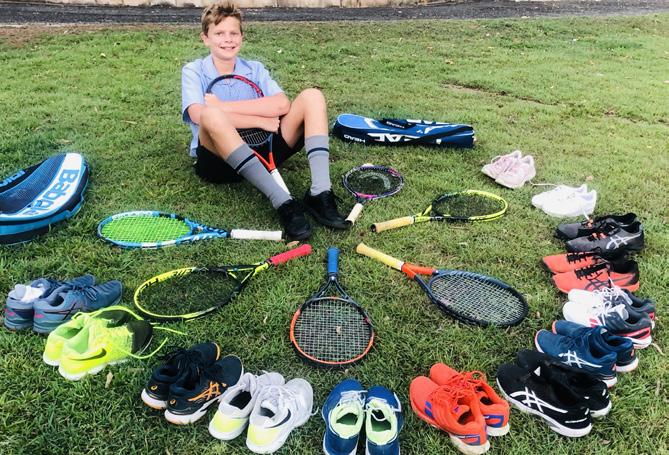
3 minute read
A world leader in understanding and overcoming COVID-19
Molecular virologist and BGS Old Boy Professor Andrew Davidson ’79 is at the front line of COVID-19 research. By growing the virus in his Bristol University laboratory, he and his team determined the genetic organisation of the virus and its proteins, enabling further work into SARS-CoV-2 at the molecular level.

The work of Professor Davidson’s team has been used to develop SARS-CoV-2 testing and vaccines. More recently, he has been studying whether vaccines are effective against SARS-CoV-2 variants.
His breakthrough research was not by chance and his passion for science can be traced back to his time at Brisbane Grammar School.
“I really enjoyed my education,” he said. “I remember the different teachers at BGS – many of them had a positive impact on me. All of my science teachers were very encouraging, and we did interesting experiments back then.”
After BGS, Professor Davidson went on to study a science degree majoring in biochemistry and chemistry at The University of Queensland before completing his Honours and PhD.
Moving to Germany, he undertook postdoctoral studies ahead of attaining a Fellowship for four years, where he started plant virus research. A return to Australia saw Professor Davidson work as a lecturer at Monash University, where he furthered his research in plant viruses, dengue virus, and coronaviruses.
His study of dengue virus and coronaviruses expanded following a move to the UK in the early 2000s. “I started in a virology position at the University of Bristol – where I remain today – working on dengue viruses and coronaviruses. During the original SARS outbreak, I started working on SARS-Coronavirus.”
“In 2015, a colleague and I received funding to work on MERS-Coronavirus, which meant we had to work in specialist facilities. When SARS-CoV-2 came along, we were really well placed to start work on it.”
“I’ve specialised in working on high containment pathogens and working on systems where we can make synthetic viruses – taking viruses and copying them by molecular means. That allows us to manipulate the clone of a virus by introducing mutations or taking pieces out to work out how different viruses work in combination with the host.”

Professor Davidson enjoys working in synthetic biology, combining different disciplines. “It is very interdisciplinary at Bristol University; we’re not just working as virologists in our lab, I’m working with chemists, engineers, and social scientists.”
A current project involves teaming with aerosol chemists. “They can take microsized droplets and levitate them in an electric field, raise the temperature, change the aerosol conditions or radiate them with UV light. So we take those droplets and load them up with the virus to look at the survivability of the virus.”

Professor Davidson continues to be excited to head to work each day. “My job is never boring; I still love doing research in the lab and enjoy teaching. It’s been very intense since the pandemic began but incredibly inspiring.”
“It’s inspiring to know that doing a test to see how the virus can be inactivated helped a national testing centre to develop better ways of testing. Some of the work we have done in our lab has impacted policy in the UK, and we have contributed to vaccine design. We aim to translate our findings to better healthcare.”
His final comment was on the importance of vaccines. “Every vaccine has side effects; you just have to put the risks in perspective. But the only way to get on top of this pandemic is through vaccines.”











